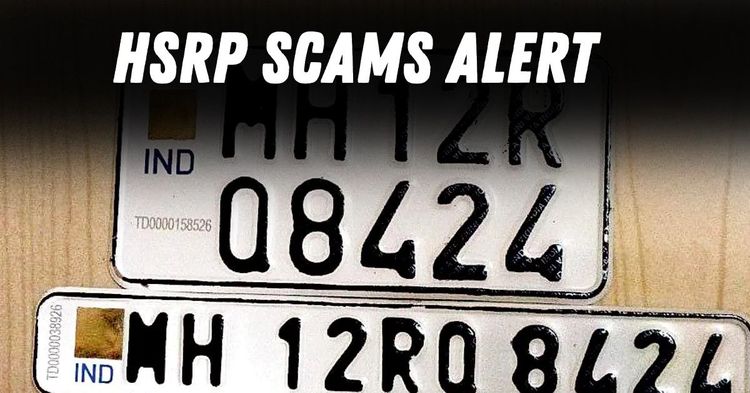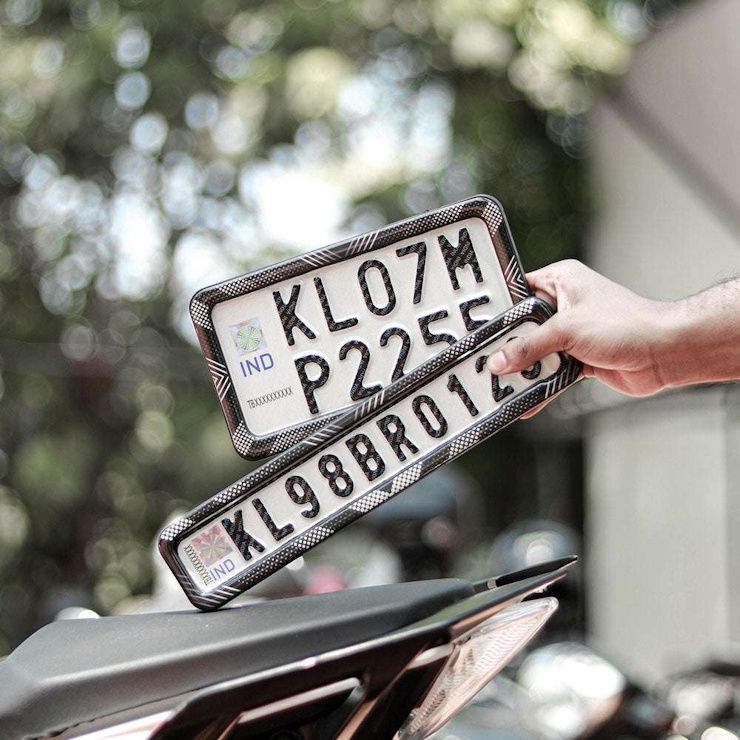Online HSRP Scam Alert: Fake Websites Target Indian Vehicle Owners


The rush to comply with the government’s mandate for High-Security Registration Plates (HSRP) has created a new playground for cybercrooks in India. As the June 2025 deadline approaches for all vehicles registered before April 2019 to have HSRPs, a wave of fake websites has emerged, duping unsuspecting vehicle owners out of their hard-earned money.

It starts innocently enough. A vehicle owner, keen to follow the law, searches online for “HSRP registration” or “book high-security number plate.” Multiple websites pop up, many looking almost identical to the official portals. The urgency to comply, combined with the convenience of online payment, makes it easy for even tech-savvy users to fall into the trap.
Saaransh Maheshwari, a software engineer from Pune, shared a cautionary tale. He clicked the first search result, followed the steps, and paid ₹900 for his number plate. Only after noticing an unfamiliar payment recipient did he realise he’d been scammed. His attempts to report the fraud went unanswered, leaving him frustrated and out of pocket.
Fraudsters create websites that closely mimic the look and feel of the official state transport department portals. These sites often appear high in search results and are sometimes promoted through ads or shared on social media and messaging platforms. The fake sites ask users to enter personal and vehicle details, then prompt for payment—often at inflated rates.
Once the payment is made, victims receive no confirmation or, worse, are sent counterfeit plates that do not meet government regulations. In some cases, the scammers simply disappear with the money, leaving no trace. The scam is so convincing that even vigilant users can be caught off guard, especially when the fake sites use names and branding similar to government contractors.
In Pune, police have recorded complaints from victims who lost sums ranging from ₹1,500 to ₹4,000 while trying to book their HSRP online. The Pimpri Chinchwad cyber police note that these fake websites are designed to be indistinguishable from the real ones, making it difficult for the average person to spot the difference. The Maharashtra transport department has confirmed at least six fake websites impersonating official contractors, with similar incidents reported in Mumbai and Bengaluru.
One notable case involved a 57-year-old man from Bengaluru who created a fake HSRP website, overcharged applicants, and sometimes did not deliver the plates at all. He was eventually arrested, but not before cheating around 40 vehicle owners. In many cases, victims only realised they had been scammed after failing to receive a confirmation or the actual number plate.
HSRPs are not just about compliance—they’re a security feature. These tamper-proof plates come with holograms and laser-engraved codes, making it harder for criminals to clone or misuse vehicle identities. The Supreme Court’s directive to mandate HSRPs aims to reduce vehicle-related crimes and improve road safety.
• Always use the official state transport department website for HSRP bookings. For Maharashtra, this is [transport.maharashtra.gov.in], where you can find the correct link for HSRP applications.
• Double-check the website address before entering any personal information or making payments. Official sites are usually government domains (.gov.in) or those linked from the transport department’s homepage.
• Be wary of ads or links shared on social media and messaging apps. Scammers often use these channels to spread fake registration links.
• Look out for warning signs: unusual payment recipients, higher-than-usual fees, or lack of confirmation after payment.
• If in doubt, visit your local RTO or call their helpline for guidance. While helplines can be busy, persistence is key.
As the deadline for HSRP compliance nears, more vehicle owners will go online to book their plates. The convenience of digital services is undeniable, but so is the risk of falling prey to increasingly sophisticated scams. Staying alert, verifying sources, and sharing experiences can help others avoid similar pitfalls.
The lesson from recent incidents is clear: when it comes to vehicle registration and compliance, trust only official channels. A little caution can save a lot of trouble—and money—down the road.